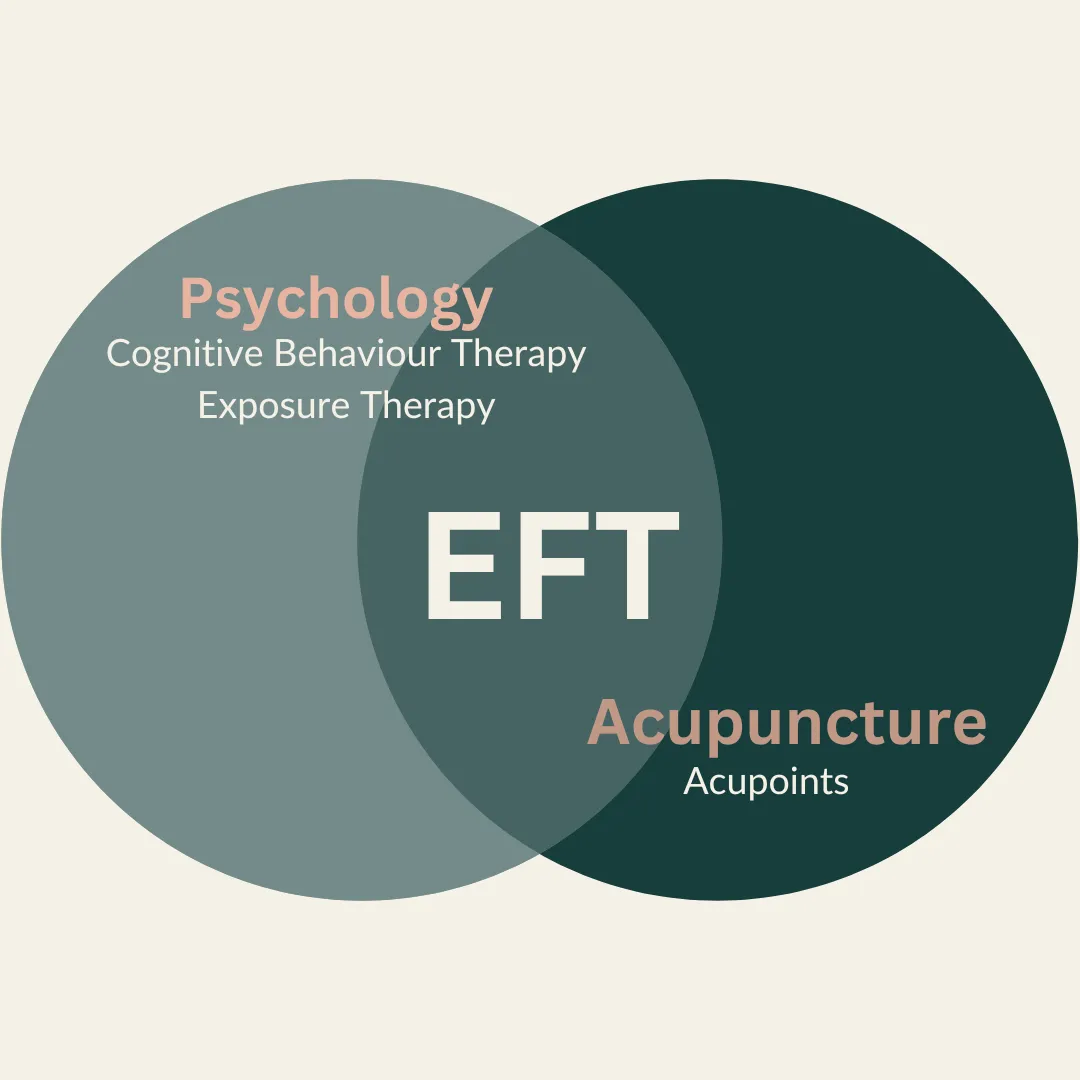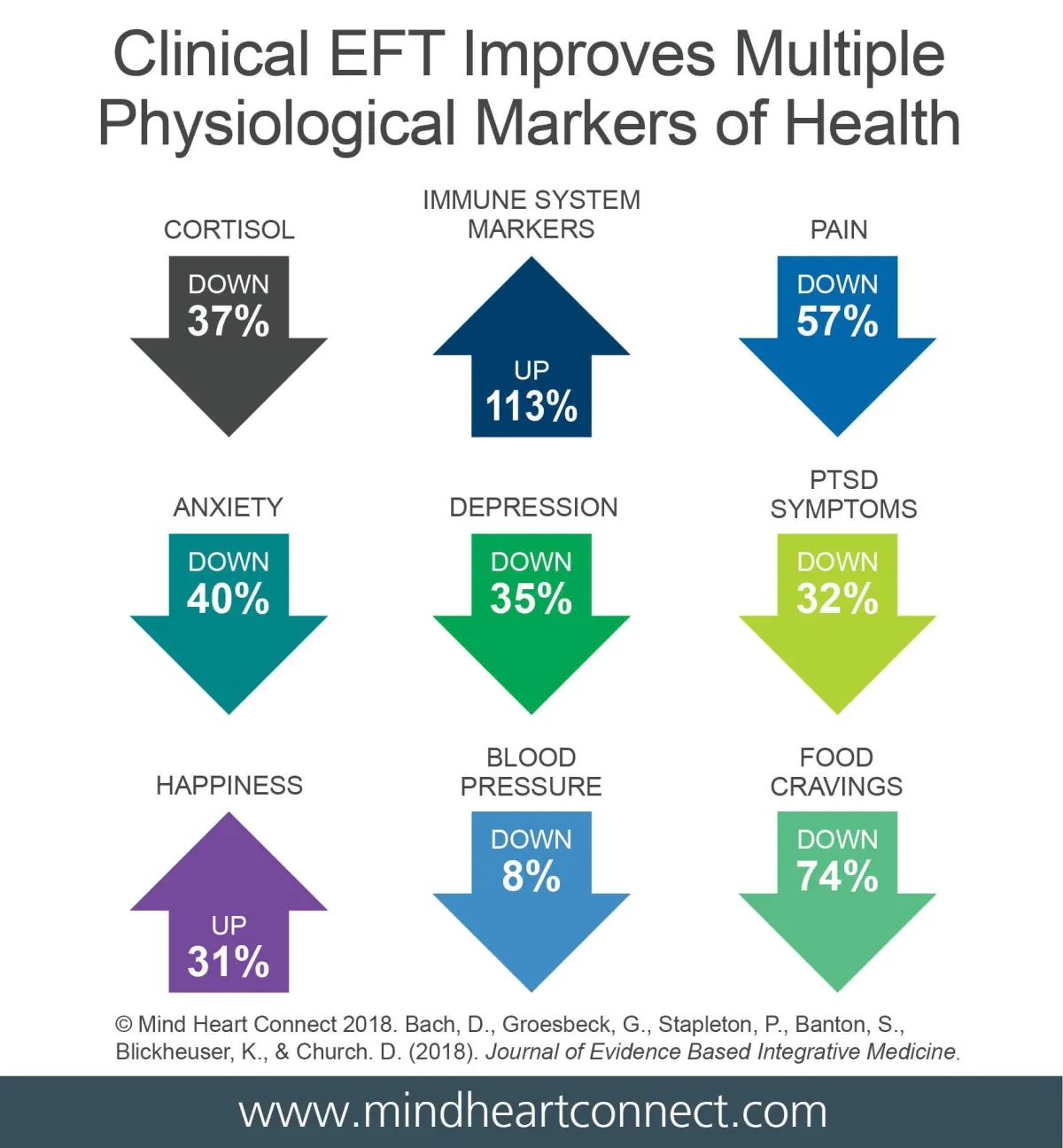More about EFT (Emotional Freedom Techniques)
Emotional Freedom Techniques (EFT or tapping) is a mind-body technique that calms the body, reduces stress and helps regulate emotions.
It is evidence-based and combines acupuncture and psychology.
Individuals tap on their own acupoints on the upper body (the same points used in traditional acupuncture) while focusing on a specific emotion, belief, problem or event.


What are the benefits?
EFT can:
calm the body, creating a feeling of safety.
quickly reduce stress and the intensity of emotions, bringing individuals out of a heightened state so they are more rational and less impulsive.
help build resilience. It is self-applied and only requires an individual's fingers. Therefore, individuals can regulate and support themselves at any moment.
help individuals identify their needs, empowering them to take steps to meet them.
initiate emotional/psychological changes. The tapping process enables individuals to identify, accept, question and release thoughts, beliefs and emotions. This creates space for them to create new thoughts and beliefs.
EFT is painless, simple, fast, easy to learn and has no adverse side effects.


How does it work?
Tapping on certain acupoints generates an electrical signal, which is transmitted through the body's primo-vascular system to the brain and nervous system. This signal:
turns off the sympathetic nervous system – the body’s stress or fight-flight response.
turns on the parasympathetic nervous system – the body’s relaxation system, often called the ‘rest and digest’ state.
calms parts of the brain (amygdala and limbic)
brings down the body’s stress hormone (cortisol)
What is the evidence?
EFT has been researched in more than 10 countries by more than 60 investigators. More 320 published research studies show it is 99% effective.
Research shows tapping is effective on stress, anxiety (everyday anxiety and diagnosed), depression, low self-esteem, phobias, Post Traumatic Stress Disorder, food cravings, pain, and can improve concentration, memory and performance enhancement.
For further research and evidence go to:
https://www.petastapleton.com/science-of-tapping-2022
https://eftinternational.org/discover-eft-tapping/eft-science-research/




